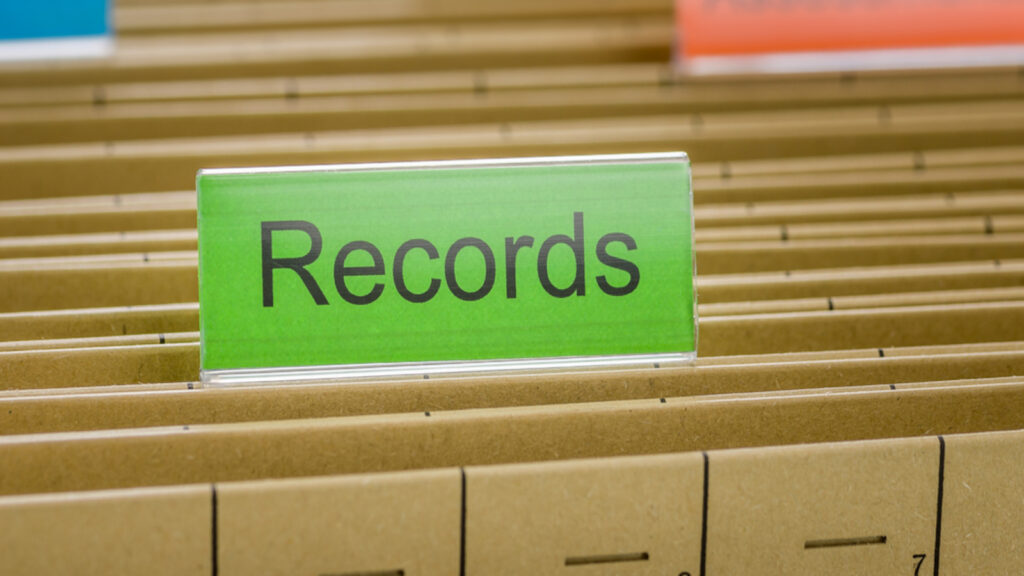Update: The House Appropriations Committee passed HB 24-1296 on a 7-4 vote on Friday, Apr. 12.
By Jeffrey A. Roberts
CFOIC Executive Director
A reworked Colorado Open Records Act bill endorsed by a House committee Monday shifts the legal burden of proving that a requester of records is “vexatious” to a government entity’s records custodian.
The introduced version of House Bill 24-1296 had given records custodians the power to consider anyone — except a journalist — as vexatious if that person demonstrated “an intent to annoy or harass a custodian,” limiting their access to public records under CORA for 30 working days and making them go to court to challenge that designation.
But with amendments approved by the House State, Civic, Military and Veterans Affairs Committee, the bill now requires a records custodian to ask a district court to determine that an individual or entity is vexatious. If a judge decides a requester is vexatious, after weighing 11 factors that include the number of requests made and “a pattern of conduct that amounts to an abuse of requests or an interference with the public entity’s operation,” the records custodian could delay providing records to that person for 30 working days. And that person would be considered vexatious for three years.

Rep. Cathy Kipp, the Fort Collins Democrat who introduced HB 24-1296 to curb the “abuse of CORA,” said she changed the vexatious provision because “there was discomfort that it could be abused by custodians. But really our intent is that this vexatious-requester language would be used fairly infrequently. I don’t think there would be very many people who would come under the term ‘vexatious requester.’”
“The individual has to get to a really high level of annoyance,” added the bill’s co-sponsor, Rep. Matt Soper, R-Delta. “… And all of these determining factors have to be weighed against a public-interest factor. It’s a very, very, very high bar to be able to clear.”
Rep. Elisabeth Epps expressed concerns, however, that some people who are labeled vexatious might have to fight the government in court without an attorney. “I don’t think it’s likely to be an even adversarial process,” the Denver Democrat said.
Approved 7-4 by the committee, the CORA bill as rewritten gives records custodians five working days, rather than the law’s current deadline of three working days, to comply with records requests, and an additional 10 working days if “extenuating circumstances” apply. The current deadlines would remain in place for requests made by the news media, as defined in Colorado’s reporter’s shield law.
The measure establishes a new extenuating circumstance, extending the response period an extra 10 working days when “the custodian, or a person who is essential to the process of responding to requests, is not scheduled to work within all or part of the five-day period.” It also allows a records custodian to treat multiple CORA requests made by the same person within 14 days as one request — ensuring the requester gets only one free hour before “research and retrieval” charges kick in.
Kipp said the bill “is a good balance between governmental transparency and our (government) organizations that are stretched thin.” Representatives of several government associations testified in favor of the measure, but the committee also heard plenty of opposition from individual Coloradans who regularly use CORA.
HB 24-1296 “send a real clear message to the people of Colorado as to how the legislature views ordinary citizens in this state and our ability to see what our government is up to,” said Cory Gaines, who lives in Sterling.
The Colorado Freedom of Information Coalition opposes the additional obstacles created by HB 24-1296, especially when exorbitant fees already can be a significant barrier to obtaining public records. Because of an inflation factor built into CORA since 2014, state and local government entities starting July 1 will be allowed to charge an hourly rate to process requests that likely exceeds $40 after providing the first hour at no charge, up from the current maximum rate of $33.58.
At Kipp’s urging, the committee also removed a controversial provision from her bill that would have added a broad new CORA exemption allowing the withholding of “any record containing information that, if disclosed, would invade another individual’s personal privacy.” CFOIC argued that the proposed provision was open to interpretation and could overturn decades of judicial precedent in Colorado regarding the availability of public employees’ personnel files, including disciplinary records that could show misconduct.
HB 24-1296 also let a records custodian take 30 working days to provide records to someone who plans to use the documents “for the direct solicitation of business or pecuniary gain” and recover “the full cost of associated with responding” to such a request. A requester could appeal the custodian’s determination in district court.
The bill also makes a government employee’s calendar “that is kept and maintained primarily pursuant to the employee’s employment” off limits to public inspection, except for the calendars of elected officials or “employees in leadership positions.” Such records, however, would be available to journalists.
Another amendment added Monday requires government entities to post information on their websites about how members of the public can request public records.
HB 24-1296 now heads to the House Appropriations Committee. The bill requires appropriations totaling $236,815 to several state agencies in FY 2024-25, according to its fiscal note.
Follow the Colorado Freedom of Information Coalition on Twitter @CoFOIC. Like CFOIC’s Facebook page. Do you appreciate the information and resources provided by CFOIC? Please consider making a tax-deductible donation.




